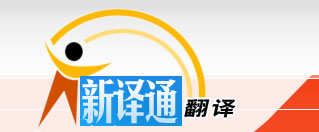摘要 目的: 研究维生素A缺乏与婴幼儿喘息的相关性。方法: 331例患儿在入院时抽静脉血3ml, 测定血清维生素A浓度。结果: 331例患儿中血清维生素A浓度<1.05μmol/L共240例, 占72.5% , 其中维生素A可疑缺乏89例(26.9%)北京日语翻译, 轻度缺乏71例(21.5%), 中度缺乏48例(14.5%), 重度缺乏32例(9.6%)。维生素A缺乏程度与病程有关, 62例持续喘息患儿中有41例存在维生素A不同程度缺乏(66.1%), 269例急性喘息患儿中有110例存在维生素A不同程度缺乏(40.9%), 两组比较差异有显著意义(P<0.01=。其中持续喘息组维生素A重度缺乏14例(34.1% ), 中度缺乏16例(39%); 急性喘息组维生素A重度缺乏18例(16.4%), A中度缺乏32例(29%), 两组比较持续喘息组维生素A中、重度缺乏率明显高于急性喘息组(P<0.01=。维生素A缺乏程度与病情轻重有关, 70例重度喘息患儿中有51例存在维生素A不同程度缺乏(72.9%), 261例轻中度喘息患儿中有100例存在维生素A不同程度缺乏(38.3%), 两组比较差异有显著意义(P<0.01=。其中重度喘息组维生素A重度缺乏24例, 占重度度喘息的47% , 轻中度喘息组维生素A重度缺乏8例, 占轻中度喘息的8%, 重度喘息患儿维生素A重度缺乏率明显高于轻中度喘息患儿(P<0.01=。血清维生素A缺乏与年龄关系不大。结论: 重庆地区婴幼儿喘息患儿普遍存在血清维生素A, 维生素A缺乏程度可能同病程和病情轻重相关。各年龄段缺乏率无明显差异上海英语翻译。
Abstract Objective: To investigate the relationship between vitamin A deficiency and infant wheezing. Method: The venous blood (3ml) samples were collected from 331 hospitalized children suffered from wheezing to determine the serum vitamin A concentration. Results: There were 240 patients (72.5%) whose serum vitamin A concentration were lower than 1.05μmol/L, among which 89 patients (26.9) were suspected to suffer from vitamin A deficiency, 71 patients (21.5%), 48 patients(14.5%) and 32 patients(9.6%) were identified as mild, moderate and severe vitamin A deficiency, respectively. The degree of vitamin A deficiency was related to the length of clinical course. 41 patients (66.1%) suffered from varying degrees of vitamin A deficiency among the 62 patients who suffered from persistent wheezing. 110 patients (40.9%) suffered from varying degrees of vitamin A deficiency among the 269 patients who suffered from persistent wheezing. A significant difference between the two groups has been identified (P<0.01). Among the persistent wheezing group, 14 patients (34.1%) suffered from severe vitamin A deficiency and 16 patients (39%) suffered from moderate vitamin A deficiency; among the acute wheezing group, 18 patients (16.4%) suffered from severe vitamin A deficiency and 32 patients (29%) suffered from moderate vitamin A deficiency. By comparison between the two groups, there is a significantly higher incidence rate of patients suffered from moderate and severe vitamin A deficiency in the persistent wheezing group than in the acute wheezing group (P<0.01). The degree of vitamin A deficiency was related to the patient's condition. 51 patients (72.9%) suffered from varying degrees of vitamin A deficiency among the 70 patients who suffered from severe wheezing. 100 patients (38.3%) suffered from varying degrees of vitamin A deficiency among the 261 patients who suffered from mild and moderate wheezing. A significant difference between the two groups has been identified (P<0.01). There were 24 patients (47%) suffered from severe vitamin A deficiency in the moderate and severe wheezing group and there are 8 patients (8%) suffered from severe vitamin A deficiency in the mild and moderate wheezing group. It is found that the incidence rate of vitamin A deficiency was significantly higher in patients who suffered from severe wheezing than in patients who suffered from mild and moderate wheezing (P<0.01). No significant relationship between serum vitamin A deficiency and age. Conclusion: serum vitamin A deficiency can be commonly seen in infants in Chongqing and the degree of vitamin A deficiency might be related to the length of clinical course and patient's condition. No significant differences of incidence rate were found between groups with different ages.


